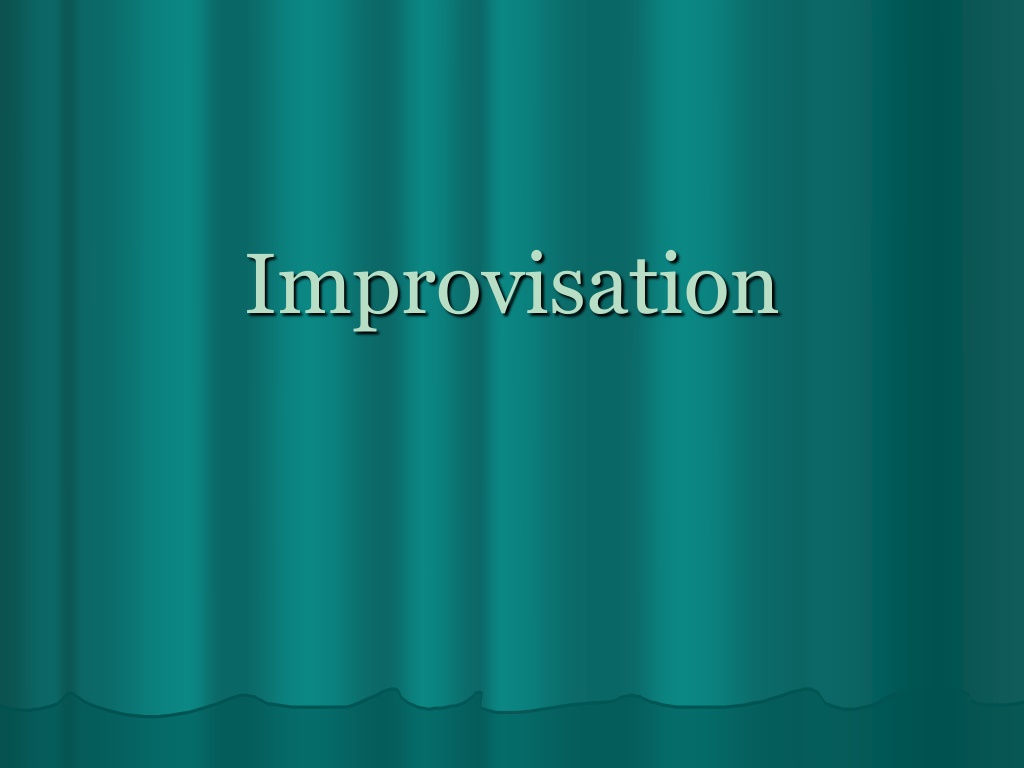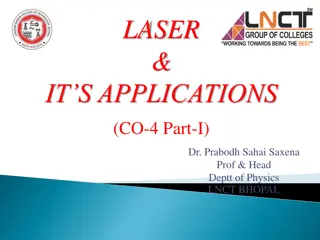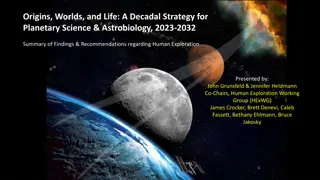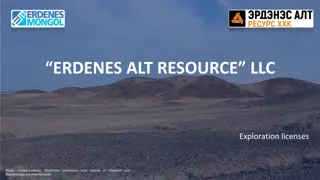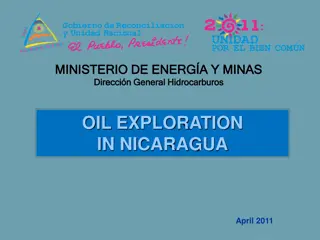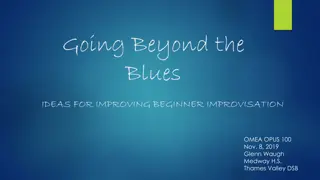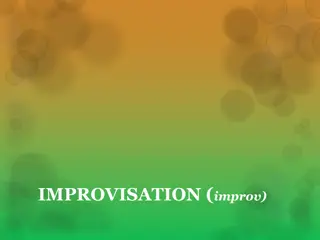Spontaneous Exploration in Improvisation
Improvisation is the spontaneous exploration of characters, locations, and events without scripts or extensive rehearsals. It thrives on conflict, dramatic situations, characterization, and objectives, providing a platform for engaging and animated performances. To excel in improvisation, it is crucial to accept offers, stay immersed in the created world, focus on objectives, and avoid dead-ending scenes. Theatre is action-oriented, emphasizing on accepting facts, listening, observing, and responding authentically to enhance the collaborative storytelling experience.
Uploaded on Feb 24, 2025 | 0 Views
Download Presentation

Please find below an Image/Link to download the presentation.
The content on the website is provided AS IS for your information and personal use only. It may not be sold, licensed, or shared on other websites without obtaining consent from the author.If you encounter any issues during the download, it is possible that the publisher has removed the file from their server.
You are allowed to download the files provided on this website for personal or commercial use, subject to the condition that they are used lawfully. All files are the property of their respective owners.
The content on the website is provided AS IS for your information and personal use only. It may not be sold, licensed, or shared on other websites without obtaining consent from the author.
E N D
Presentation Transcript
Improvisation Improvisation is the SPONTANEOUS exploration of who, where, and what. It is performed without scripts or major amounts of rehearsal.
Who? An improvisation can be character- centered. The who can provide the most important imaginative component. Who might be an OLD LADY, COP, NURSE, PREACHER etc. Where? An improvisation can be location- centered. The where can be the basis for much of the comedy or drama of the scene. Where could be in the ZOO, ELEVATOR, BEACH, FUNERAL PARLOR, etc.
What? An improvisation can be situation- centered. The what can be an event that provides the imaginative content that drives the direction of the improvisation. What might be a WEDDING, ROBBERY, FUNERAL, GAME SHOW, etc. An improv based on these examples could end up being the wedding of an old lady and a cop in an elevator.
Improvisations will be too short or die out quickly unless there is CONFLICT involved. If there is a situation where one of the characters wants something and the other will not let him or her have it (objective and obstacle), then these characters are in conflict and the conversation can become quite heated and animated.
Improvisation You need a dramatic situation, dialogue, and characterization in a good improv. Dramatic situation one in which the characters are facing a situation that forces them to act. YOU MUST HAVE THIS IN AN IMPROVISATION! Characterization the portrayal of the physical, intellectual, and emotional traits of each character. Objective what your character WANTS
How to act during an improvisation Do accept every offer. Do accept what is said as fact. Do stay in the world you create. Do keep focused on your objective. Do listen, observe, and respond as the character you ve created. Don t dead-end the improv with the word, No. Don t reject offers.
Focus only on the other actor, NOT THE AUDIENCE! Don t spend time explaining: THEATRE IS ACTION!
